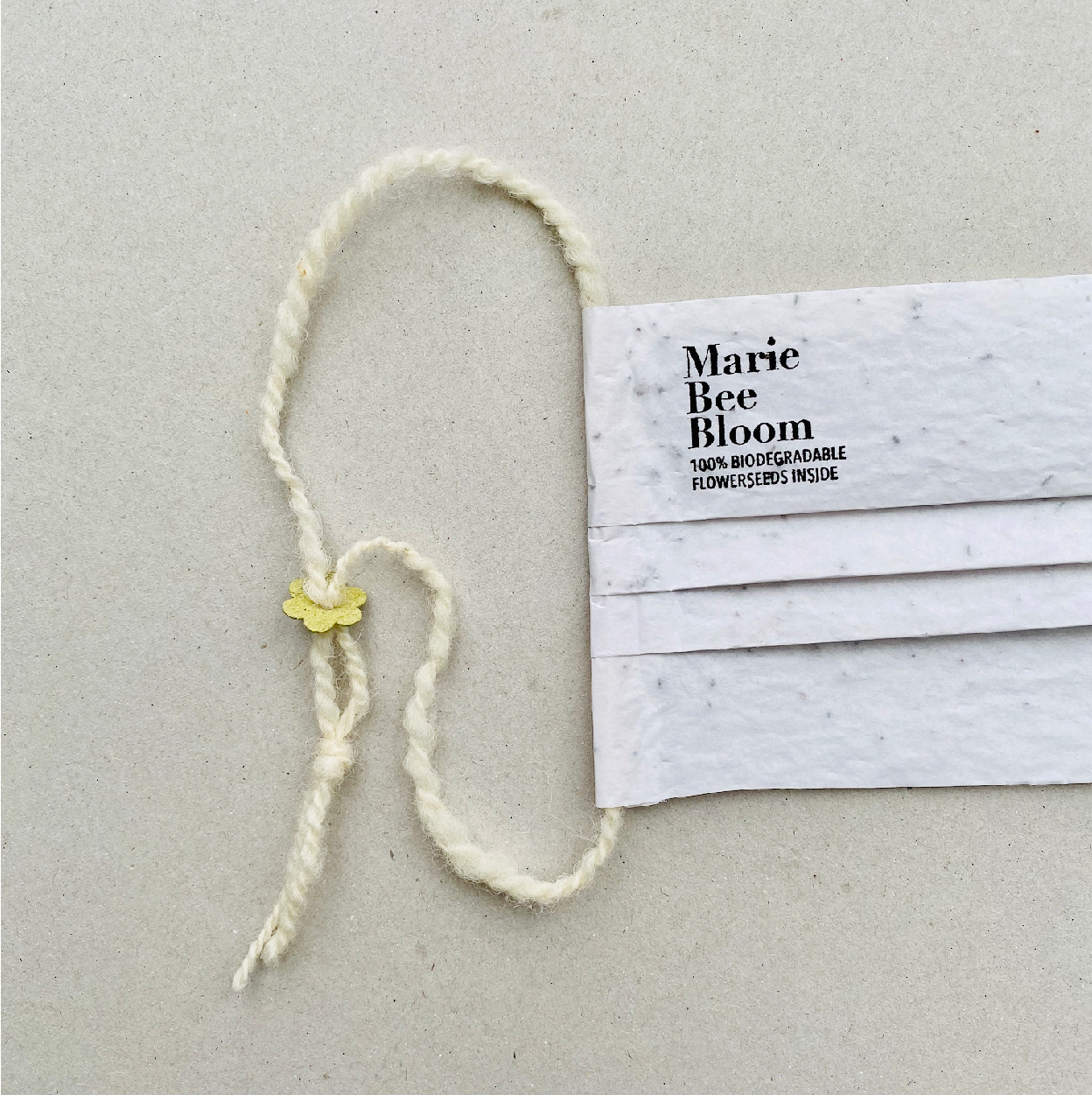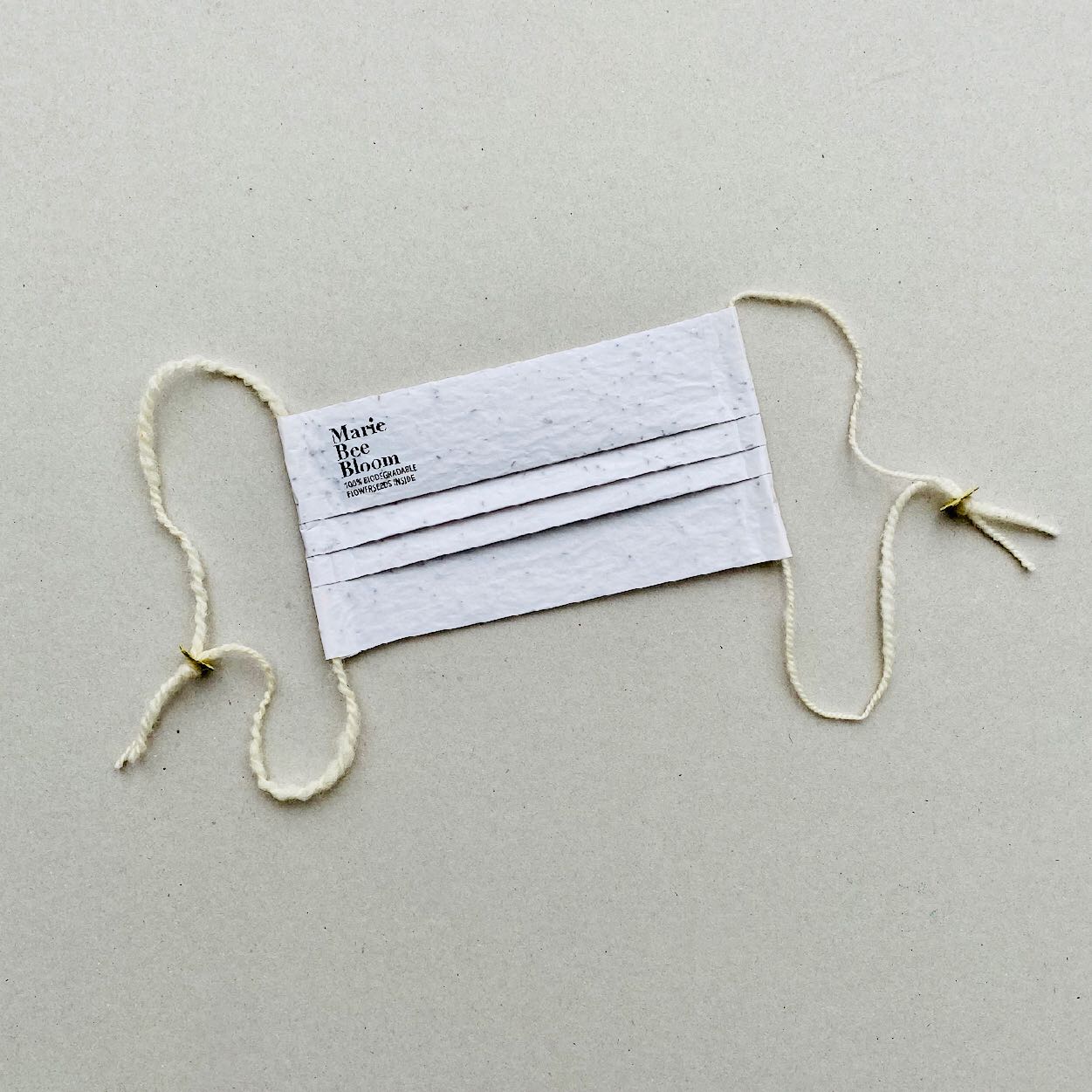According to Science Daily, roughly 129 billion face masks are used globally every month, with 3 million face masks thrown away every minute of the day.
When discarded, disposable face masks pose a lasting environmental threat because they are created from potentially toxic plastic microfibres that can take up to 450 years to decompose. The afterlife of a plastic face mask ranges from polluting landfills, to smothering ecosystems, and to endangering wildlife. Is there a sustainable solution?
These global environmental concerns set against a backdrop of European streets littered with disposed masks led Dutch designer Marianne de Groot-Pons to “give something beautiful back to nature”: a biodegradable face mask.
The Marie Bee Bloom face mask is made from rice paper filled with flower seeds. The straps of the mask are spun from sheep’s wool, and the glue used in attaching certain parts is made from potato starch and water. As a result, this entire face mask can be safely buried in the ground.
View this post on Instagram
In fact, we are meant to plant the Marie Bee Bloom mask in the garden after use, the seed-filled “fabric” giving way to flowers that bloom in place of pollution.
Marianne de Groot-Pons says that by blossoming into flowers, these masks are also a solution for the declining bee population. “Earth happy, bees happy, nature happy, people happy.”
All images in this article are courtesy of Marie Bee Bloom.







